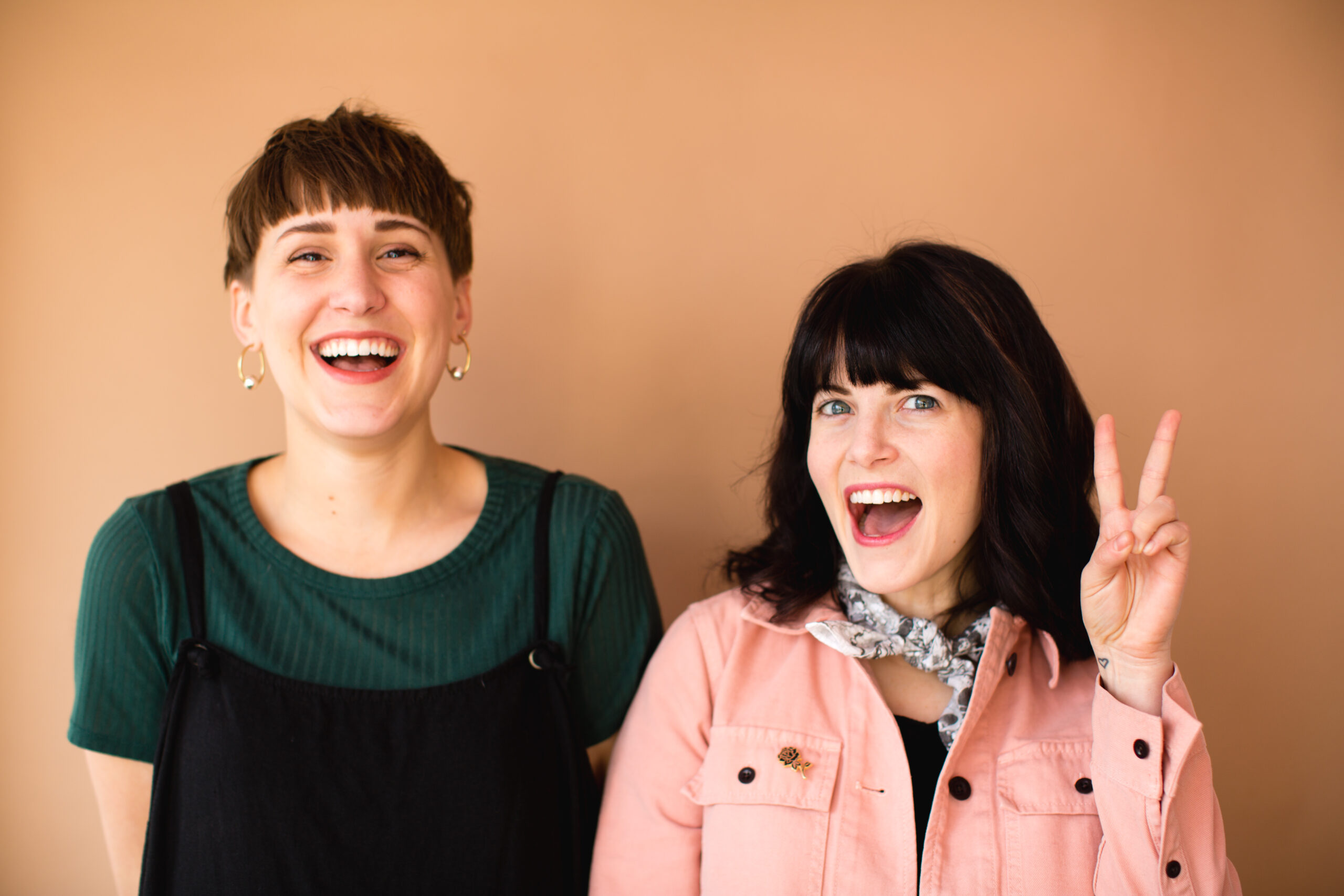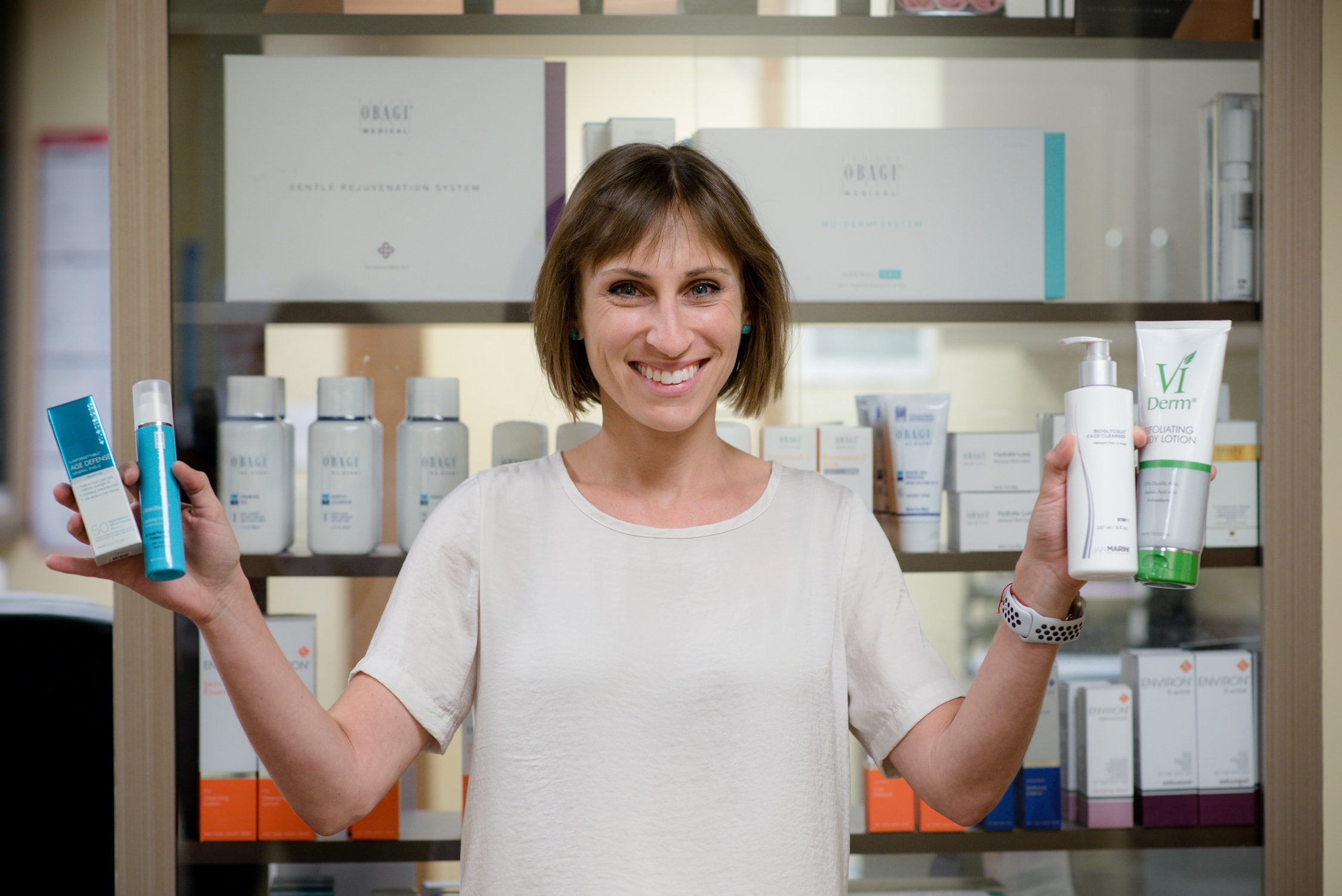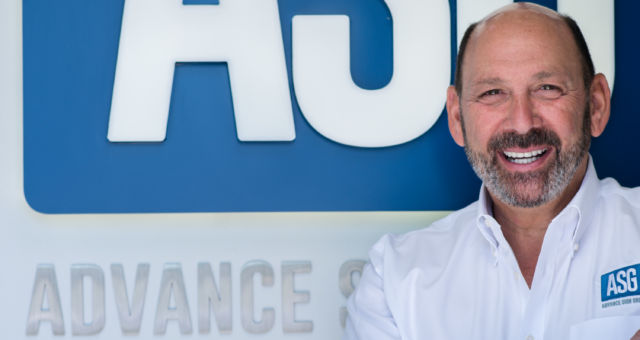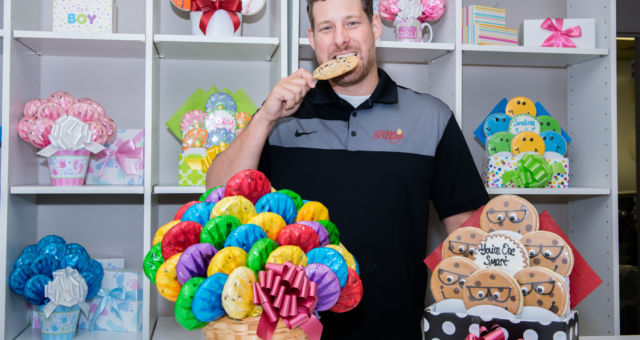As a niche business owner, Ryan Srbljan plays by different rules. Running Corvette Care as its third owner has required Ryan to continue to adapt to the specific needs of this specialty. Read about how he’s shifted his payment structure, moved to a new, larger facility, and blended old school with new in marketing.
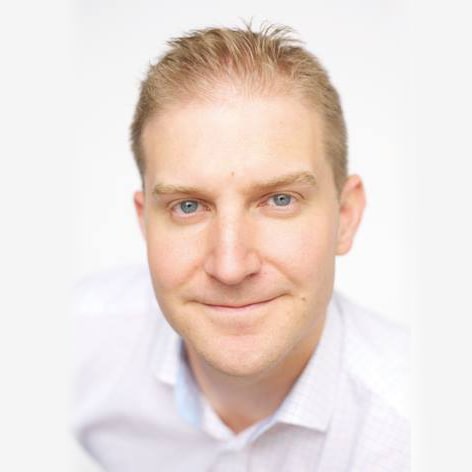
Follow Corvette Care on Socials: Facebook | Instagram
Give us a summary of your business in 200 words or less.
Corvette Care has been serving the greater Corvette community since 1979. We’ve grown from a small one-man shop to a nationally recognized Corvette Specialist offering a full scope of services from basic oil changes to full frame-off restorations. Plain and simple, our mission is to help Corvette enthusiasts deepen their passion for their vehicles.
How did the idea for your business come about?
Corvette Care was founded as a passion project by its founder, Lloyd Harvey, in the mid-70s. Lloyd owned a paint and body shop and was a Corvette fanatic.
As for me, I’ve always been a “car guy.” I grew up in central Illinois literally 100 feet from the 1940s route of Route 66. The automotive bug was just something I never grew out of, and even though I was handy with a set of wrenches, I knew my genuine strength was in the people’s side of the business.
I held a few high-level positions with firms here in Columbus in advertising, even a seat on the board for the American Advertising Federation (AAF), but it all felt like a mismatch. When the second owner of Corvette Care reached out to me, it seemed like something I couldn’t pass up.
Note: Looking to work with an advertisers for your business? Read our list of the Top 10 Marketing Agencies in Columbus to get started!
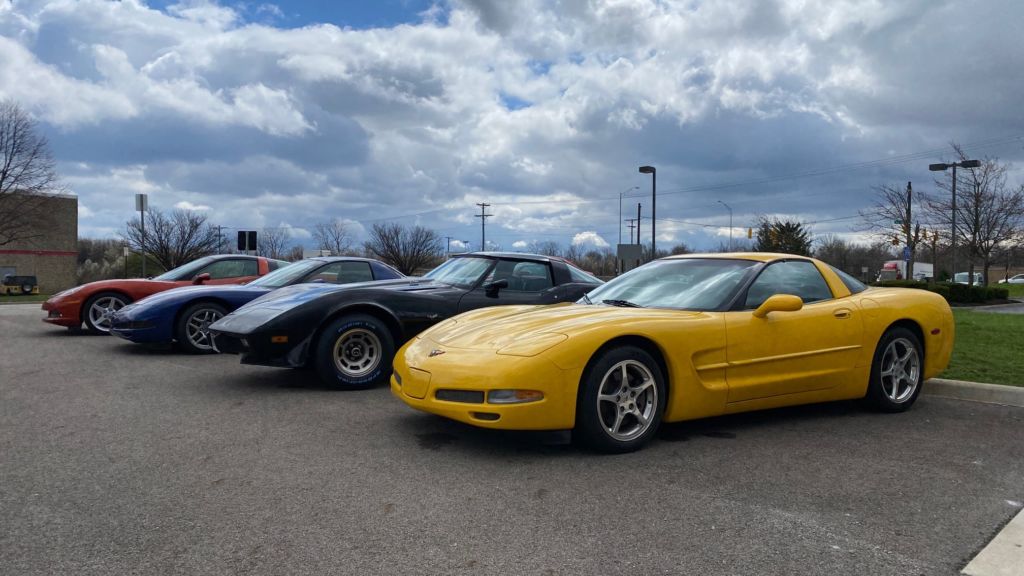
What was the turning point for your business?
The business changed hands from Lloyd around 2010. The second owner was a great mechanic but didn’t see the potential in the brand outside of its ability to generate a personal income. It declined in reputation and revenue. It honestly felt lost, like simply a place to have automotive work done.
I acquired the business and began growing a team around the brand with a clear purpose: helping Corvette enthusiasts deepen their passion for their vehicles. My background in high-end restorations and business operations has been incredibly valuable as a tool, but in the end, it’s all about the recruitment and training of people with a genuine passion and aligned moral code. It’s always about people.
Note: Our list of the Top 10 Staffing Agencies in Columbus can help you find your own team!
What does it mean to you to be an entrepreneur and business owner?
I find that entrepreneurship is about finding a passion and pursuing it endlessly. We all have that spark, but we don’t always apply it to business. There are incredibly entrepreneurial individuals who aren’t business owners.
Business ownership has become less about a vision of scaling and growth of Corvette Care in recent months. I find myself driven more around providing a stable and financially responsible container to allow our staff and customers to explore and develop their passion. I feel that my role is to ensure that Corvette Care can provide our staff with the highest quality of life and opportunity and to align that with incredible clients that are seeking to follow their automotive hearts. I find success every day not in a bank account, but in seeing great, passionate people help great, passionate people.
What does the city of Columbus mean to your business?
Columbus is an incredible community. It’s large in population but small in feel. I learned a long time ago that I wanted to operate the business with a small corner shop feel: personal, relationship-oriented, and approachable.
At the same time, we needed scale and scope to sustain as an entity. I feel like Columbus has been able to do the same, even with explosive growth in the last 2 decades. It’s remarkable, orchestrated by an excellent group of individuals that do not garner the credit they deserve!
Are you from Columbus? If not, please explain what brought you here and ultimately what made you stay.
I went to college at Purdue University, where I met my wife Jamie. She took a job in Columbus, so we moved to New Albany and never left the area.
Initially, I was in business development roles. Connectivity is key in that sort of role, and Columbus was an incredibly open and welcoming business environment. 20 years later, we have no plans of leaving.
What’s the number one piece of advice you’d give to anyone wanting to start a business?
Understand your purpose and know that money is not a purpose… or at least it won’t be a sustainable one. If you can’t state the reason your business exists in a single sentence to someone who knows nothing about it, you need to reevaluate your purpose.
I was told years ago by an incredibly successful mentor that raising a child is comparable to starting and/or growing a business. Businesses are living, breathing, evolving entities. You get what you choose to grow.
What do you wish you knew about entrepreneurship before starting your business?
Entrepreneurship is more about emotion and gut than science and statistics. Yes, you need to be able to run in a financially responsible fashion, but that’s more operational than entrepreneurial.
I spent many years calculating, evaluating, and learning business acumen. In the end, experiences and relationships are what gave me the ability to do what I do today. I don’t know that you can rationally weigh all the odds and come to the conclusion of “jump.” It’s the passion that drives you to take the leap.
What’s the most challenging part of your business?
We rely on outside vendors for very specific things – think rebuilding an original mechanical fuel injection system on a 50s Corvette. There are maybe three people in the US who have deep intrinsic knowledge of these systems. The skilled laborers with this knowledge are aging, and I fear it’ll be lost with that generation. A few times a year I make a call only to hear that we’ve lost another great individual, and no one has picked up the torch.
Note: Looking for a skilled laborer around the house? Our list of Columbus’s Top 8 Handymen Services can give you some guidance!
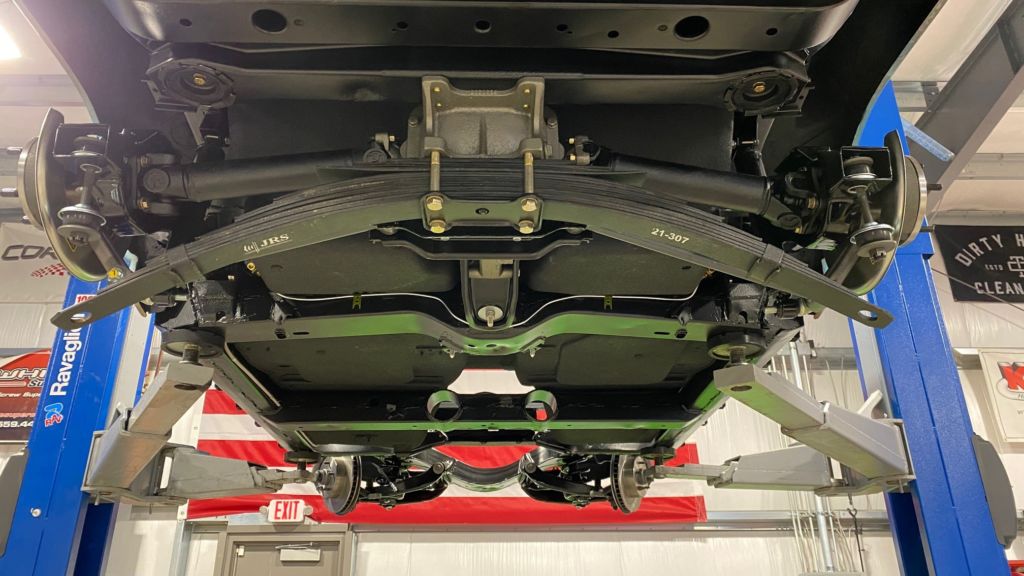
What does that mean for the next 10-20 years?
It’s my personal belief that in the long term we’ll see a reduction in the number of shops like ours, but the ones that succeed will figure out how to blend old-school mentalities with modern processes and marketing. 20 years ago, there were limited resources to tell the story of a business like ours, but now we’ve got boundless ways to reach the masses.
Every business owner has a flaw. What’s yours?
I get into the weeds. My closest colleagues often tell me that I’ve “fallen into the rabbit hole.” I see opportunity everywhere, but some things should be left to specialists that can provide a better customer experience around that category of business.
If a customer tells me they’ve had issues getting something done or had a bad experience, my head immediately goes to trying to solve that problem and offer it to a larger audience. I begin researching and exploring, but the fact that I/we don’t have knowledge around that process should be an indicator that we shouldn’t offer that service.
Why do you think most business owners fail? What has made you different?
They try to do it all themselves. The best thing you can do as a leader is hold tight to purpose and bring your team back to that purpose in every interaction.
When I speak to business owner peers, the most common pain point seems to be believing they could do a job better than someone on their team. Every business is different, but allowing your team to win and lose is infinitely more valuable than proving your way is best. It’s all part of the process.
Has it been hard to relinquish this control, to let your team “lose”?
As long as it doesn’t impact the end product for our clients, it’s simply part of the process.
What was your biggest mistake and what did it cost you?
Generally, my biggest mistake was thinking I knew what was “right.” Or that there even was a “right.” Early in my career, I would evaluate options, fortify the one that looked best with research, and then build a fortress around my opinion. It moved me quickly into high-level roles in a few organizations and was touted as business acumen and leadership. It wasn’t. I was just the best salesman in the room.
Looking back, it cost me relationships – good, smart people with great ideas wouldn’t share their views if they were counter to mine. I missed incredible collaborative opportunities both inside my employers’ walls and I’m sure outside of them as well.
What tool has helped you the most for your business?
It’s a process of evolution – next month I’ll have a different answer than I have today. When I first purchased the business, I’d tell you it was all about standardizing the flow of information: ensuring that everyone had good, current information, when needed.
After that, it’s been about how efficiently we can relay that knowledge, from the techs working on vehicles to vendors so they know what we need, to customers so they know what they’re getting.
When did you know it was time to expand your business, make your first hire, etc.?
We simply listen to our clients. In March of last year, we tripled the size of our facility and moved to a location that was within a minute of the 270 loop. Those decisions were made by listening to our customers. Our lead times were getting extended, so we shortened them with a bigger facility in a more convenient location.
Note: If your business needs to move to a bigger facility, our list of the Top 10 Commercial Real Estate Brokers in Columbus would be a great place to look!
What is something you did that was a game-changer for your business?
Our web presence. Initially, I had anxiety over how well the imagery of our builds would show online, like we were setting unattainable expectations. I had to remind myself that it was our work on display. We’d already set and met the bar.
What was an idea that you spent a lot of time on or thought would make a big difference in your business that didn’t pan out?
Building the shop with marketing visuals in mind instead of process efficiency. In my head, when we built the new shop, I wanted white epoxy floors, perfectly pristine work bays, and meticulously laid out parts. Making that work in a shop that is producing at the level we do isn’t realistic. Cleanliness and organization are operational musts, but driving that to a point of being unproductive isn’t a reasonable ask.
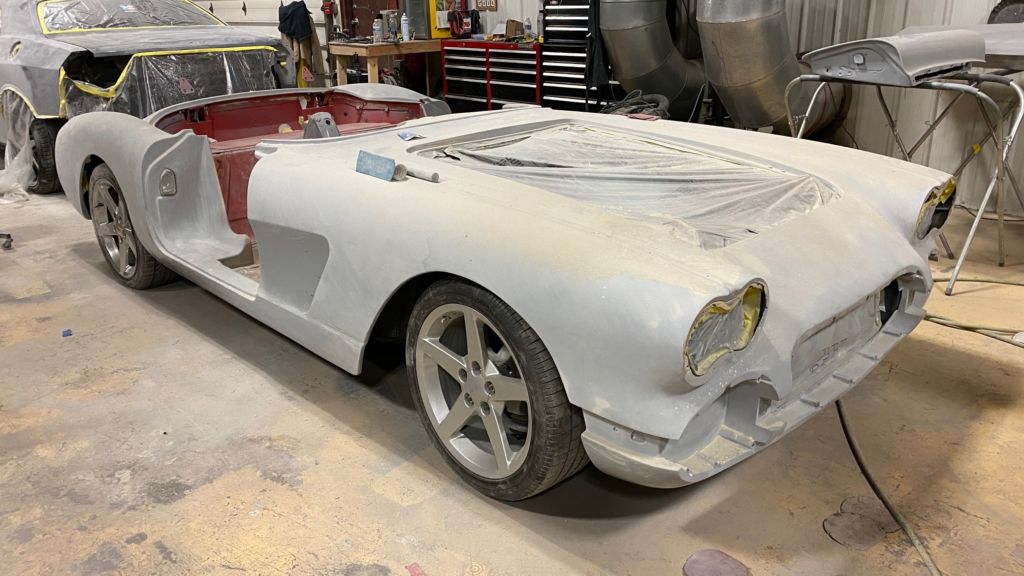
What is something your business spends a lot of money on that’s worth it?
People. Most shops operate under a pay structure that’s designed to protect the employer. I’ve never used that pay structure. If you have an employee that you need to be protected from, they’re not the right person to have in that seat. We reward results and share in success at all levels of the business.
How do you know you’re choosing the right people?
If you figure this out, be sure to let me know. We bring candidates through a pretty stringent vetting process, because it’s not the good days that are a concern, it’s the moments of stress and pressure.
Hiring the whole person is something I believe in, and sometimes it can take a while to see who that person is. I always boil it back to that fundamental equation of respect versus trust. Everyone gets respect, it’s a basic human right, but trust is earned. If a teammate doesn’t understand that, it will never work here.
What is something you’re working on now that you’re very excited about?
We have an incredible 1960 Restomod Corvette in process right now that’s unlike anything we’ve ever produced as a company. It’s got the entire crew fired up for sure, and we have an incredible customer we’re working shoulder to shoulder with to get it done right.
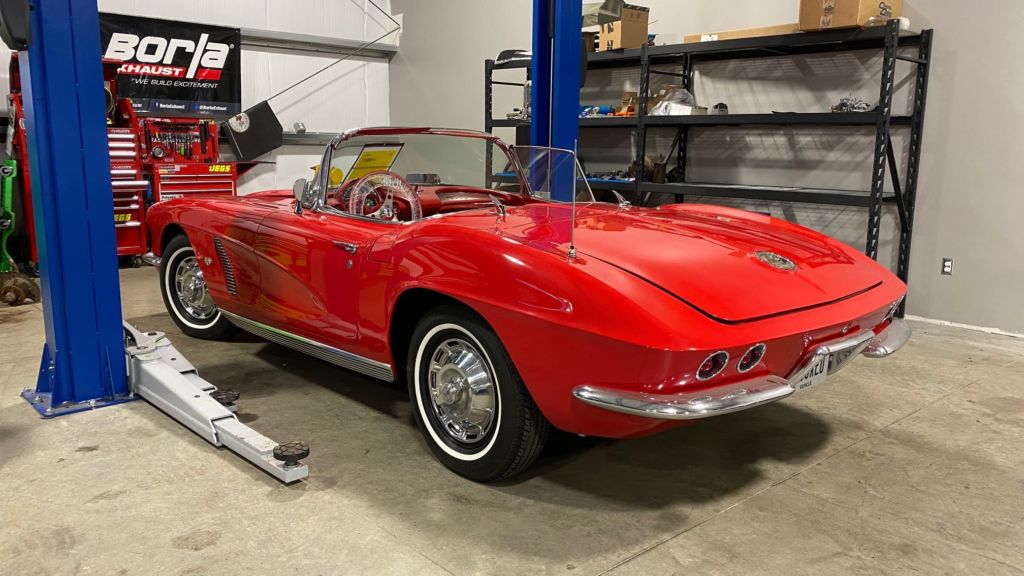
What form of marketing is the most valuable for you?
Word of mouth. That sounds crazy in our digital world, but in the last year, over 60% of our new client growth has come from other customers. Especially in the restoration world, you’ll find that “car guys/gals” flock in the same crowd, and four decades of reputation precedes any Google Ads spend.
Who is your best Columbus resource?
There are several that are cornerstones for me. These are the people I keep on speed dial that take care of huge portions of our business world:
- Greg Arenstien of Arenstein & Andersen Law Firm
- Wes Harman of Nichols & Co CPAs
- Stan & Sean Edgell of Strategic Planning
Who do you vent to when you have a business problem?
I’ve got a small circle of business owners that I rely on for specific issues, several of which are in the resources listed above.
Where do you see your business in the next 10 years?
Hopefully we’re on the same path and continuing to fortify the legacy of the brand. We’ve spent a lot of energy to date on establishing our purpose in the world, and I’d hope we can continue to tell our story with a wider audience.
What is your revenue range?
$1mm – $5mm
What was the single worst decision you made regarding your business and how’d you recover?
Initially, I tried to apply a more traditional payment structure with customers. Namely, you drop off a car and pay on pick up. I found that we were majorly extended in purchasing and relying on parts availability to be able to complete a project and invoice. Additionally, any parts delay meant we were storing cars, often for months or weeks at a time.
We changed our process to a parts purchase upfront, and once all parts are on the shelf, a car comes to the shop for timely completion. This sounds so obvious, but automotive shops have such a historically bad reputation that asking clients to pay for something they can’t walk away with is a big ask. We leveraged our history and tenure and found great success with the process. We’re no longer extending capital for parts purchases, and it’s been revolutionary for cash flow as a whole.
When you’re stressed or overwhelmed, what do you do to overcome this feeling?
Grab a fly rod and head to the river. I’m a prodigious fly angler and find peace in it. It’s not the fishing, it’s the focused activity – you can have a great day of casting without catching a single fish. If I’m showing signs of fatigue, my wife Jamie will throw me out of the house to go spend some time in nature.
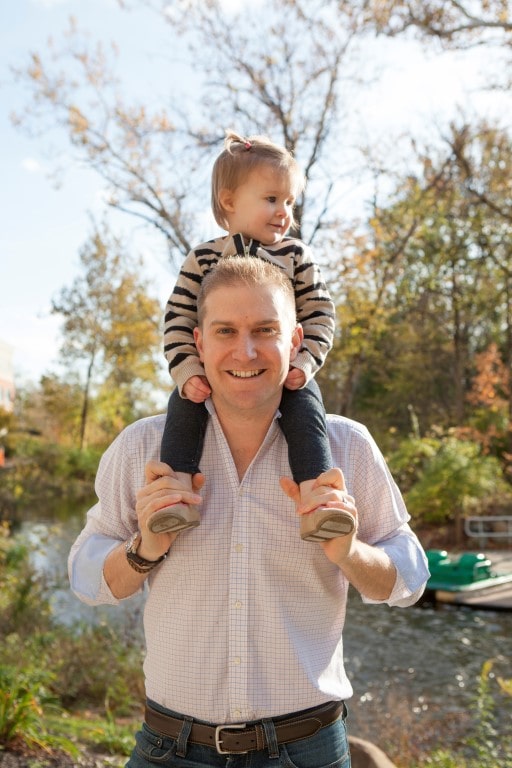
What’s one component of entrepreneurship that’s much different than what most people think?
There’s no right answer here. I think that everyone’s entrepreneurial journey is different. The meaning behind that journey is also different for everyone. If your portrait of an entrepreneur is a Steve Jobs or Elon Musk, you’re overlooking some genuinely incredible minds that have applied their journey to amazing pursuits.
What’s your end goal with the business? Is this something you want to pass down to your kids or would you like to eventually sell?
For now, I’m only focused on creating a sustainable environment where we can continue to align customers, staff, and projects for many years to come.
What other entrepreneur do you look up to most?
It’s a name you probably won’t know, but a client turned friend, Heath Wilson. Heath was involved in a large online insurance business, and not only succeeded in scaling, but also in handing it off and stepping away. He’s been a great colleague and mentor.
If you had to tell a visitor one thing to do/see/eat in Columbus, what would it be?
COSI (Center of Science and Industry) – if you don’t have kids, it will bring out the kid in you. If you do have kids, you can all go be kids together for a while.

